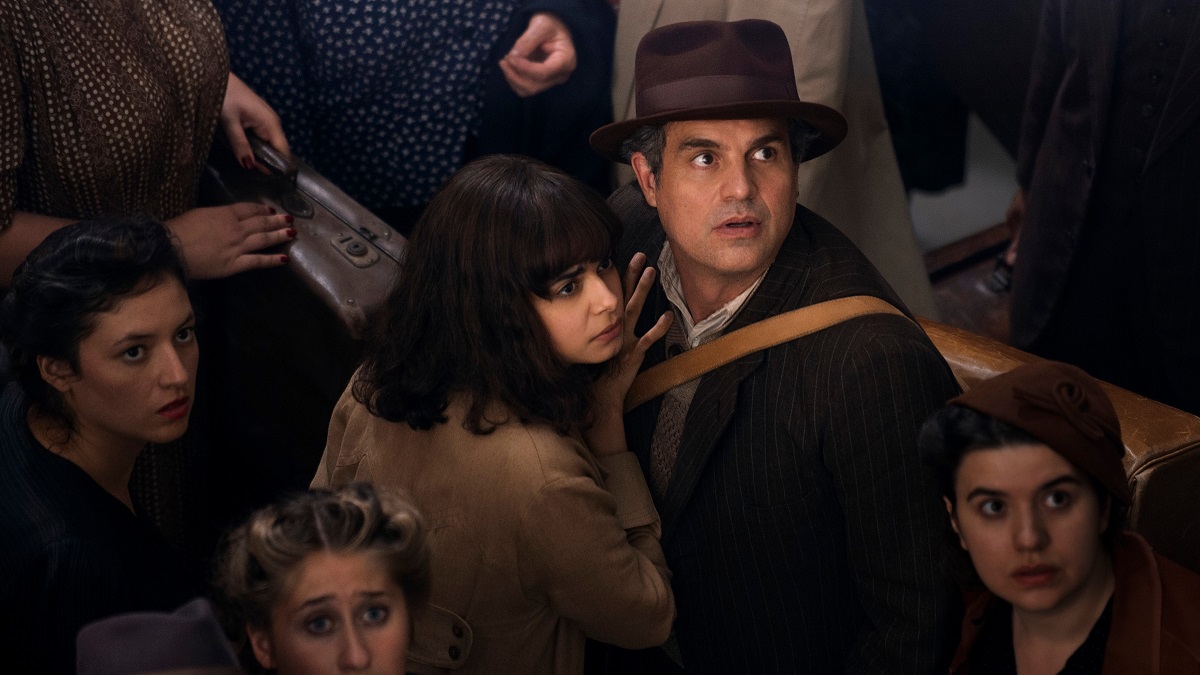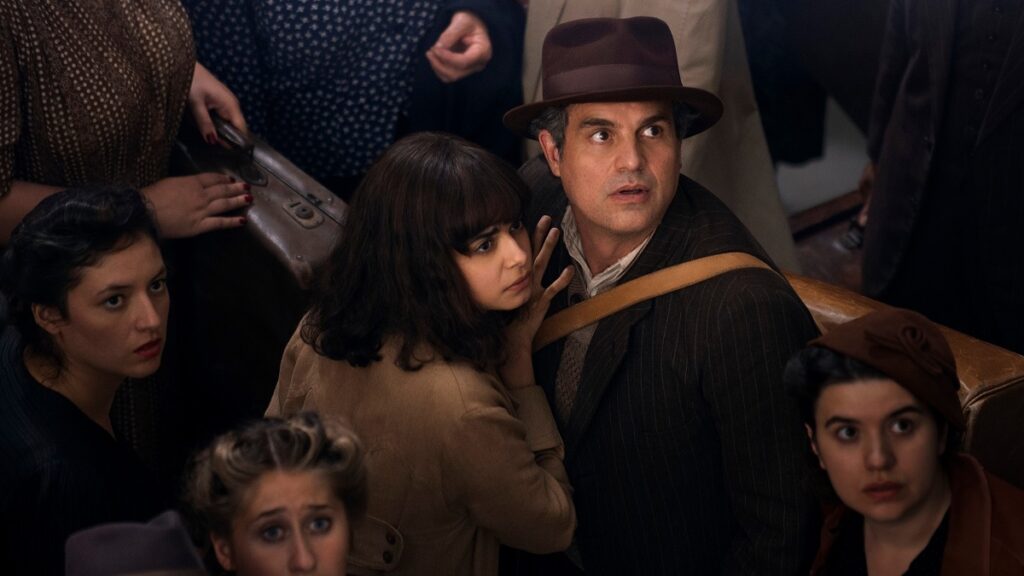
Image via Netflix
Best-selling novels with an award-winning back story come no weightier than All the Light We Cannot See, since the adversity of war trumps almost any obstacle. Throw in a siege perpetrated by the dreaded German army circa 1944, and suddenly stakes have been upped, antes increased, and audiences find themselves in Pulitzer Prize winning territory with author Anthony Doerr. Where Marie (Aria Mia Loberti) sits alone in her attic room manning a short-wave radio and reading chapters from 20,000 Leagues Under the Sea in braille, while allied bombers turn St. Malo into a coastal ruin. Elsewhere, a German soldier (Louis Hofmann) listens in, captivated by the power of one voice to turn the tide against an invading army hell bent on world domination.
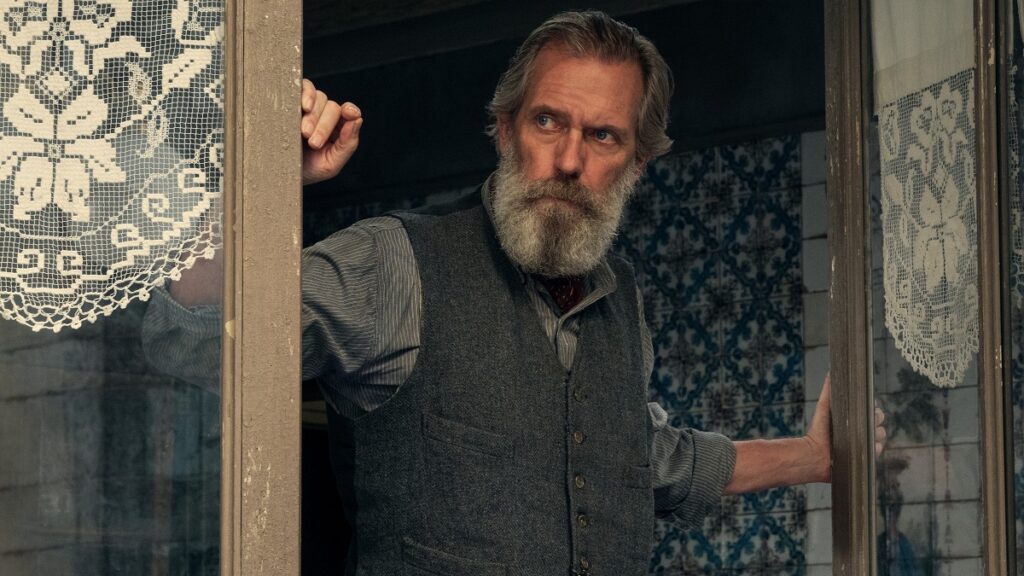
Image via Netflix
Against this backdrop of war-torn rebellion in Nazi occupied France comes a story that embraces immortality, makes the most of some polished production design and delivers passionate performances at every turn. From the enigmatic figure of Etienne LeBlanc (Hugh Laurie) who hides within his post-traumatic stress, suffers from wartime flashbacks, and keeps others at a distance, through to Sergeant Major Reinhold von Rumpel (Lars Eidinger) who comes to St. Malo with another agenda, All the Light We Cannot See often tries too hard.
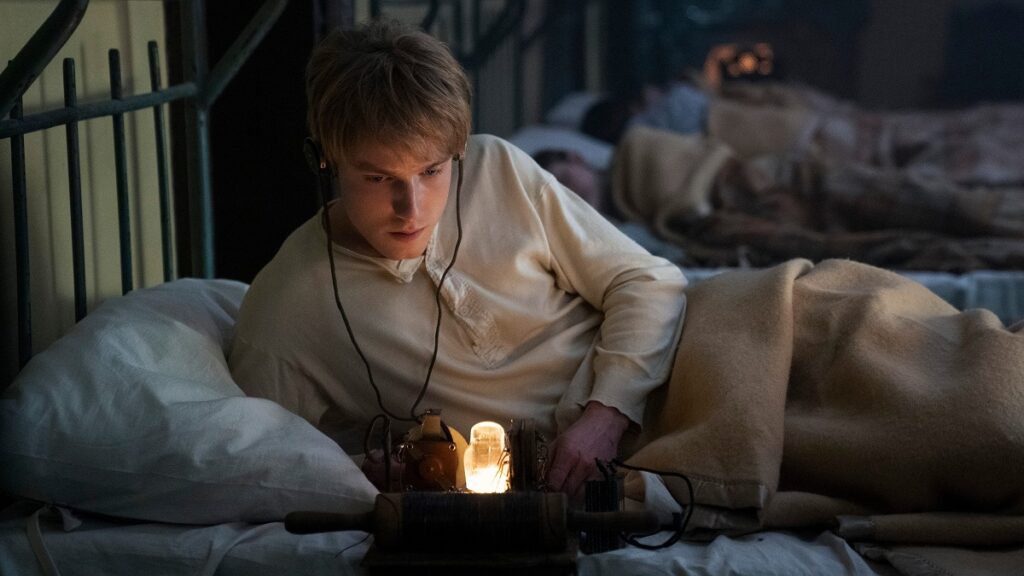
Image via Netflix
However, one light in the darkness is Mark Ruffalo as Maria’s father Daniel LeBlanc, who not only comes across as unerringly paternal in flashback, but almost disappears completely into the skin of this moral man. Cloaked beneath an accent that effortlessly conceals his American origins, much of what makes this story work comes down to his immersive performance which rarely hits a false note. Opposite Loberti, who won her role after a worldwide search, Ruffalo displays a degree of naturalism that is both disarming and charismatic, yet rarely resorts to caricature.
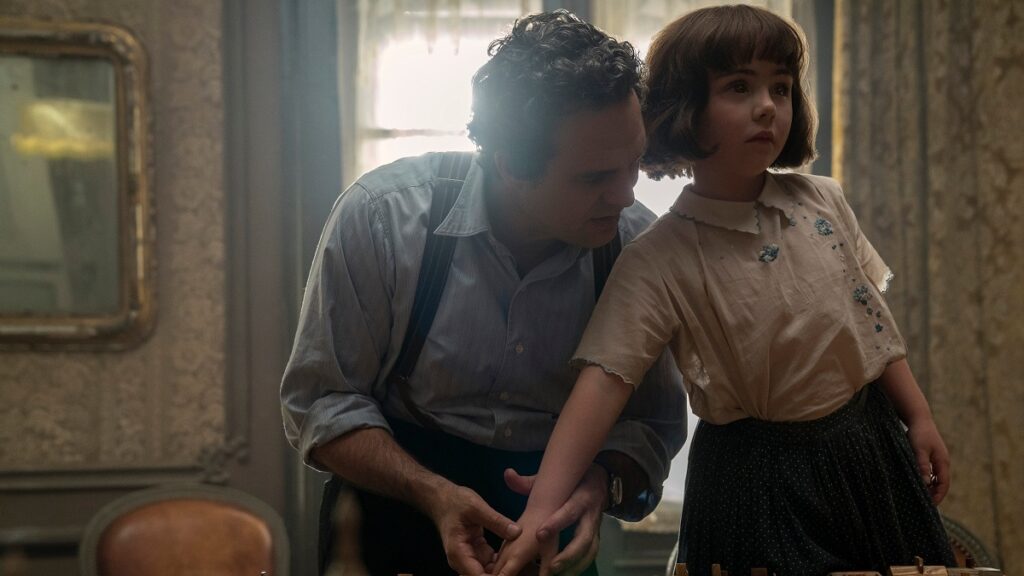
Image via Netflix
There is also an air of quiet resilience around Etienne despite his psychological ailments, that Hugh Laurie hints at with a degree of subtlety few character actors can muster. Hidden beneath some impressive facial hair, this reserved study in PTSD adds an interesting layer to the story that digs deeper than this conventional story does elsewhere. As much as writer Steven Knight (Peaky Blinders) and director Shawn Levy (Night at the Museum) try to treat their source material with the reverence it deserves, this Netflix adaptation often suffers from pedestrian pacing and lacks drama as a result.
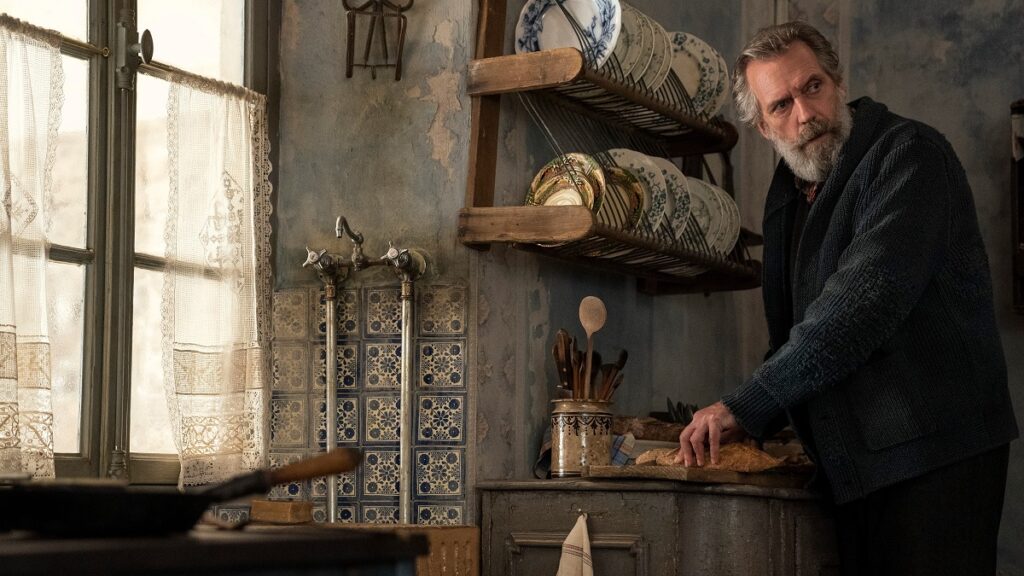
Image via Netflix
In short, All the Light We Cannot See feels like a shameless exercise in Oscar baiting for the small screen, that deserves a broader canvas to fully explore every ounce of its potential. The Pulitzer Prize might have been a great marketing tool and there is no denying the quality of those involved, but oddly this overly earnest approach strips away a degree of emotional edge which is disappointing.

All the Light We Cannot See premieres on Netflix 2 November.



